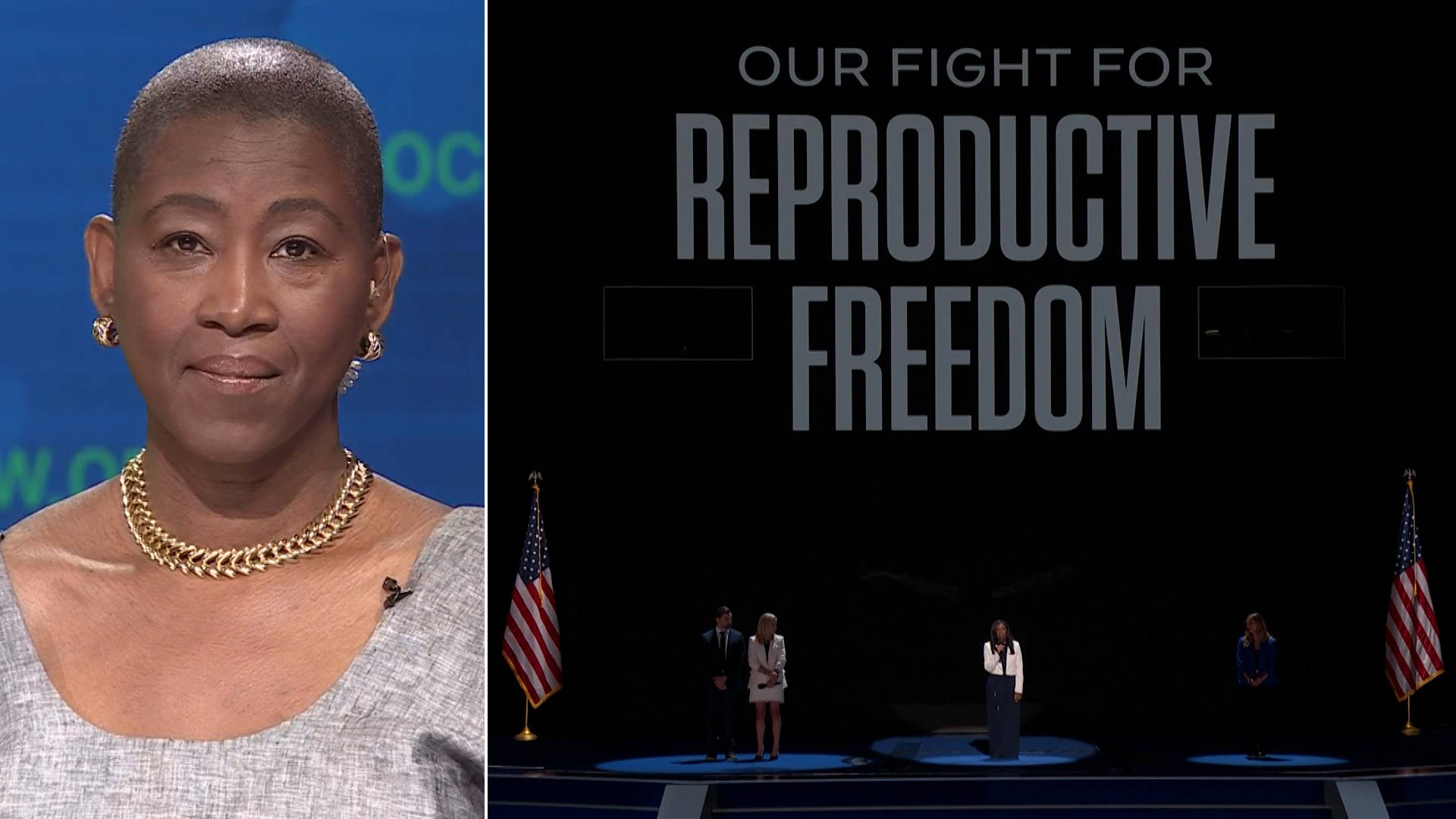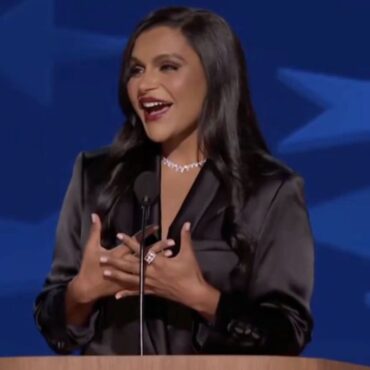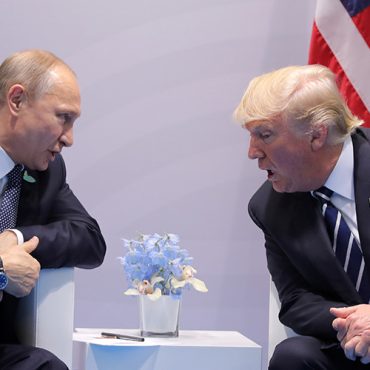This is a rush transcript. Copy may not be in its final form.
AMY GOODMAN: This is Democracy Now!, democracynow.org, “War, Peace and the Presidency: Breaking with Convention.” I’m Amy Goodman, here with Juan González.
JUAN GONZÁLEZ: On Tuesday night, the Democratic Party held a ceremonial roll call to nominate Kamala Harris as president. During the roll call, Texas was represented by Kate Cox, who was introduced by former Planned Parenthood President Cecile Richards.
CECILE RICHARDS: Proud to be here tonight representing a tradition in Texas of progressivism and my late mother Ann Richards, the governor of Texas, and passing it on to another great Texas heroine, Kate Cox.
KATE COX: I’m Kate Cox, and I love being a mom. I have two beautiful children, and my husband and I have always wanted a third. But when I got pregnant, doctors told us our baby would never survive, and if I didn’t get an abortion, it would put a future pregnancy at risk. But Trump didn’t care, and because of his abortion bans, I had to flee my home. There’s nothing pro-family about abortion bans. There’s nothing pro-life about letting women suffer and even die.
Today, because I found a way to access abortion care, I am pregnant again. Woo! Thank you. And my baby is due in January, just in time to see Kamala Harris sworn in as president of the United States!
AMY GOODMAN: That was Kate Cox, speaking for Texas during the DNC’s ceremonial roll call to nominate Kamala Harris as president. She was introduced by Cecile Richards in the Texas delegation, Cecile, former head of Planned Parenthood, now suffering from brain cancer.
On Monday night, three other women who have been impacted by abortion bans addressed the convention: Hadley Duvall of Kentucky, Kaitlyn Joshua of Louisiana and Amanda Zurawski of Texas, who was joined by her husband Joshua.
JOSHUA ZURAWSKI: When you’re expecting a baby, packing for the hospital should be a joyful moment. For us, it was different. We were told with 100% certainty we would lose our baby girl Willow, and we were sent home. For three days, we waited until Amanda was sick enough to receive standard abortion care. Eventually, Amanda’s temperature spiked. She was shaking, disoriented and crashing. I don’t remember what I threw into our bag that day, only that instead of welcoming Willow, I was hoping Amanda’s life could be saved.
I’m here tonight because the fight for reproductive rights isn’t just a woman’s fight. This is about fighting — this is about fighting for our families and, as Kamala Harris says, our future.
AMANDA ZURAWSKI: Every time I share our story, my heart breaks, for the baby girl we wanted desperately, for the doctors and nurses who couldn’t help me deliver her safely, for Josh, who feared he would lose me, too. But I was lucky. I lived. So I’ll continue sharing our story, standing with women and families across the country.
Today, because of Donald Trump, more than one in three women of reproductive age in America lives under an abortion ban. A second Trump term would rip away even more of our rights, passing a national abortion ban, letting states monitor pregnancies and prosecute doctors, restricting birth control and fertility treatments. We cannot let that happen. We need to vote as if lives depend on it, because they do.
KAITLYN JOSHUA: Two years ago, my husband and I were expecting our second child. Our daughter Lauryn couldn’t wait to be a big sister. I was getting ready for her fourth birthday party, when something didn’t feel right. Two emergency rooms sent me away. Because of Louisiana’s abortion ban, no one would confirm that I was miscarrying. I was in pain, bleeding so much my husband feared for my life.
No woman should experience what I endured, but too many have. They write to me saying, “What happened to you happened to me.” Sometimes they’re miscarrying, scared to tell anyone, even their doctors. Our daughters deserve better. America deserves better. Kamala Harris and Tim Walz will fight for reproductive rights and our freedom and our shared future.
HADLEY DUVALL: Growing up, I was an all-American girl, varsity soccer captain, cheerleading captain, homecoming queen and survivor. I was raped by my stepfather after years of sexual abuse. At age 12, I took my first pregnancy test, and it was positive. That was the first time I was ever told, “You have options.”
I can’t imagine not having a choice. But today, that’s the reality for many women and girls across the country because of Donald Trump’s abortion bans. He calls it a beautiful thing. What is so beautiful about a child having to carry her parent’s child? There are other survivors out there who have no options, and I want you to know that we see you, we hear you. Kamala Harris will sign a national law to restore the right to an abortion.
AMY GOODMAN: That was Hadley Duvall of Kentucky, Kaitlyn Joshua of Louisiana and Amanda Zurawski of Texas, joined by her husband Joshua, speaking at the Democratic National Convention Monday night.
We’re joined now by Michele Goodwin, professor of constitutional law and global health policy at Georgetown University, host of the Ms. magazine podcast, On the Issues with Michele Goodwin and author of Policing the Womb: Invisible Women and the Criminalization of Motherhood.
Thanks so much for being with us. So, we just listened to these horrific stories, how women are affected by abortion bans. And yet you have President Trump just recently saying that abortion is no longer a factor in elections, saying he believes it will end up being, quote, “a very small issue” in this year’s election.
MICHELE GOODWIN: Well, he’s not paying attention to what’s taken place since the Dobbs decision, which is something that he set in motion by the nominations that led to Gorsuch, Kavanaugh and Amy Coney Barrett, these justices, being on the United States Supreme Court and their overturn of Roe v. Wade and also Planned Parenthood v. Casey, because in the wake of this, what we saw immediately was a 10-year-old girl needing to flee one state to get to another in order to terminate a pregnancy that was due to rape. And there were lawmakers, right after, that immediately said — these were anti-abortion lawmakers that said, “It’s a hoax. She doesn’t exist. This can’t be.” And then, when it was revealed by a very crafty reporter who was in the courtroom when the person was being charged, then they said, “Well, there are protections in the state. There are protections for rape and incest.” And they did not exist. Lawmakers very specifically crafted abortion bans that made no exceptions for rape or incest, a bridge that five years ago would have seemed too far. But with Donald Trump in office and what he put forward — “I want women criminalized who have abortions. I’m going to put judges on the Supreme Court and the lower federal courts that are going to get rid of abortion” — all of that was something that we could see coming forward.
And if I could just add to that, what lawmakers have done, who have been part of an anti-abortion movement, they have actually heard from doctors that have come forward and said, “I’ve had an 8-year-old patient who was pregnant. I’ve had a patient who has a fetus with no skull. I have a patient who has a fetus with no brain development. I have patients that are about to die,” and lawmakers turning a cold blind eye to that. That’s the reality post the Dobbs decision.
JUAN GONZÁLEZ: Yet, at the Republican convention, abortion hardly came up, and it was scrubbed from the party — any mention was scrubbed from the party platform. Even in the face of public support for abortion rights continuing to grow, how do you think this is going to play out in this coming election?
MICHELE GOODWIN: Well, there have been political strategies that are now taken up by some on the right, including Donald Trump. He’s very interested in winning this election, and so he has publicly said, “Look, let’s tone down what’s our rhetoric on abortion. Let’s get through this election. We have to count votes.”
And the reason that he’s taken that posture is because in 2022, in that midterm year, there were these predictions that there was going to be the red tsunami, the big red wave. People were ignoring reproductive freedom. And yet, I kept saying, “What mother wants to look across the table at her 10-year-old daughter and say, ‘You will not have an option for the future that you deserve, because of a rape from a neighbor up the street or in this family’? No.” And what we saw is ballot initiative after ballot initiative, whether in red states or blue states, that reproductive freedom was prevailing. And we’ve seen that since this time. So, that’s why, in part, on the Republican platform, there is not much mention with regard to abortion or even “pro-life” stance, very different from the Democratic platform.
JUAN GONZÁLEZ: But there will be ballot measures in this election. I think Montana became the eighth state, on Tuesday, to put the issue on the ballot, Arizona. The impact of these ballot measures on turnout?
MICHELE GOODWIN: Well, on one hand, what these abortion ballot initiatives have meant is that they’ve all won. They’ve all been towards reproductive freedom. The same time, I think what’s really important for us to understand is that there have been efforts to thwart what has done. I mean, there are collections of 500-, 600-, 700,000 signatures, 800,000 signatures, to get these ballot initiatives in front of voters. And yet, there have been tremendous efforts to try to undermine that. And we have to keep that in mind, that voter suppression still exists in the United States. This is not voting where everyone just gets to cast their vote. And that has to be understood. Just as there are more ballot initiatives, there have been more and more efforts to suppress votes and to gerrymander certain communities out of being able to vote.
AMY GOODMAN: Clearly, the conservative anti-abortion forces are running scared. Arizona, the court just ruled, yes, this constitutional amendment can be on the ballot. But I feel like it’s like more than a decade ago when all over the country conservatives put anti-gay marriage, anti- — what we call —
MICHELE GOODWIN: Yes.
AMY GOODMAN: — now marriage equality amendments on to vote in states, because it would get people to come out and then, because they felt impassioned about that, to vote for conservative candidates.
MICHELE GOODWIN: Yes.
AMY GOODMAN: Now, because these are pro-abortion ballots on the states in like eight states, it will get people to come out who will then also vote for Democratic candidates in some of the most conservative states.
MICHELE GOODWIN: Well, here’s what’s interesting, is that, yes, that’s going to take place, and there are people who are part of the Republican Party — we’ve seen this — that are coming forward, who are men, because they understand that this is a tipping point for our democracy. What we’ve seen with the suffering of women and girls, near-death experiences, people being helicoptered out of Idaho in order to save their lives during pregnancy, is that they are the tip of the arrow. Their blood is on the tip of the arrow about our democracy. And that, we have to understand. And so, yes, folks are going to come out for these ballot initiatives, and they’re just going to come out because they actually see that the platform that’s been put forward by Democrats in this instance are ones that support democracy.
And just for our clarity to understand just what this path has been, Roe v. Wade was a 7-to-2 decision. Five of those seven justices were Republican-appointed. Justice Blackmun, who wrote the opinion in Roe, was put on the court by Richard Nixon. Prescott Bush, the father of George H.W. Bush, was the treasurer of Planned Parenthood, the national treasurer. And George H.W. Bush himself shepherded Title X through Congress. What was that? Providing reproductive healthcare for the poorest of Americans. And Richard Nixon then said, “This is just basic public healthcare.” So, the Republican Party itself has come a long way from its origin story supporting reproductive freedom.
AMY GOODMAN: We just have a minute to go. What do you think are the most important issues right now to talk about in Chicago at the Democratic National Convention, what you want to hear?
MICHELE GOODWIN: Well, I think what we want to hear is that we want to save and preserve our democracy, that civil liberties and civil rights matter, that these issues are interconnected. And, Amy, I said it on your show two years ago, and I’ve been saying it: When the Dobbs decision came down, that was a decision that was a punch in the gut to American democracy itself. When Justice Alito said, “Just go vote,” Justice Alito was not paying attention to the fact that this case — or he was — that this was a case that came out of Mississippi. Sixty years ago, it was Fannie Lou Hamer, before the National Democratic Convention, that talked about the Mississippi appendectomy, being dragged off a bus, she and other Black women, all because they wanted to vote, being beaten, taken to a jail and being beaten by the inmates at that jail, men, and then a guard taking a baton and beating her in the head. And Fannie Lou Hamer said, “All of this just because we refuse to be second-class citizens. All of this because we just want to be able to vote.” And so, these issues are interconnected, and I think her story is a beacon for understanding the trajectory of what we need for American democracy.
AMY GOODMAN: Michelle Goodwin, professor of constitutional law and global health policy at Georgetown University, host of the Ms. magazine podcast, On the Issues with Michele Goodwin, and author of the book Policing the Womb: Invisible Women and the Criminalization of Motherhood.
Coming up, we’ll hear from an American doctor just back from Gaza. And we’ll talk to former Democratic Congressmember Andy Levin, a former synagogue president, defeated two years ago after AIPAC, the American Israel Public Affairs Committee, spent millions against him. We’re in Chicago at the DNC. Back in a minute.











Post comments (0)